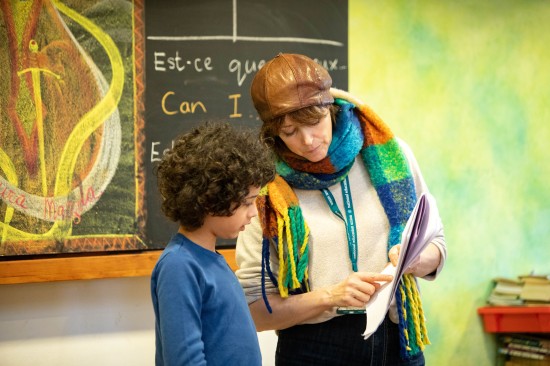The Waldorf Teacher
Inspire and be inspired.
Waldorf teachers are central to the development of pedagogy within each school and lie at the heart of the school community. Working together with school leaders they ensure the delivery of the curriculum is designed to meet the emotional, physical, spiritual and academic development of the children and young people in the school. The ability and ethical commitment to work collaboratively with colleagues is therefore essential.
The role of the Waldorf teacher is a creative one. The teacher is responsible, within a framework to design the lessons and curriculum for their particular class or group of children and young people. It requires a combination of academic, artistic and creative skills and a commitment to drawing out the 'potentialities' in each child rather than deliver a set or fixed curriculum. See the Curriculum
Lessons are delivered artistically as means of fully engaging the imagination of pupils in the learning process, regardless of the subject, whether it be mechanics or the binary system; the life of Napoleon, or meteorology.
Teachers are also encouraged to be engaged on a path of personal development. Kindergarten and class teachers usually stay with their classes for a number of years (Kindergarten 3 years; Class teachers 5 - 8 years). This helps build strong relationships and understanding with the children and their family. Teachers draw from the 'generative principles' contained in the original pedagogical philosophy developed by Rudolf Steiner for the first school.
Central to the pedagogy is the understanding that children are a combination of mind, body and spirit and that meeting the needs of each of these aspects of the growing child is incorporated into their learning and experience of school. Teachers must therefore be conversant with the elements of anthroposophy which underpins the educational approach.
The National Steiner Waldorf Teacher Standards created in 2020 as part of a collaborative process set out the clear benchmarks required for all teachers in Steiner Schools.

